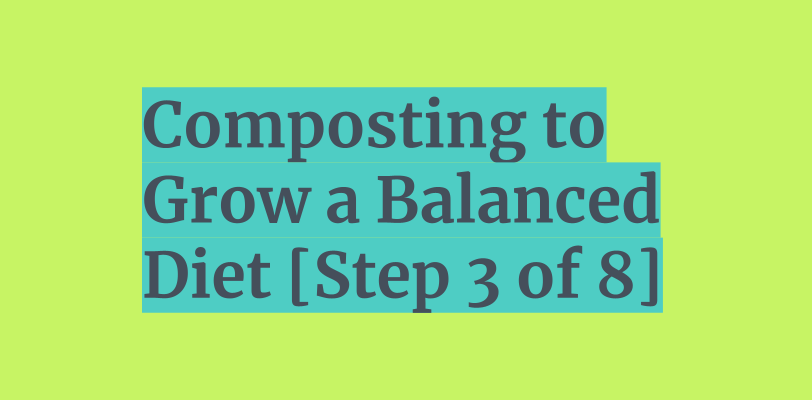Welcome to part 6 of our mini series on Conscious Buying Decisions to Help Climate Change. Last time we covered ‘Growing Your Own for a Healthy Diet’. This time we’re looking at ‘Composting to Grow a Balanced Diet’, which is also part of our series on Eating Sustainably.
You can find all content in this mini series at Mini Series: Conscious Buying Decisions to Help Climate Change.
Before we get started, it’s worth saying that this mini series is based on the Kiss the Ground Purchasing Guide. Many of the facts come from the book called Drawdown.
Find the Book Drawdown: The Most Comprehensive Plan Ever Proposed To Reverse Global Warming by Paul Hawken That You Can Find Here on Amazon*
There are 8 Steps To Eat for a Balanced Diet and the Climate:
Knowing Your Food Source
Growing Your Own
Composting
Choosing Meat That’s Regenerating Land
Choosing Dairy That’s Regenerating Land
Buying Seafood to Help Revitalise the Ocean and Ecosystems
Knowing Your Annuals and Perennials
Going Beyond the Healthiest Foods
In this piece we’re looking at step 3, Composting for a Balanced Diet.
Before you think that composting isn’t for you because you don’t have a garden or enough space, check out this video on The Compost Hack with Amy Smart.
Composting is an excellent way to stop food and garden waste going to landfill. It’s also a great way to grow like nature: Nature wastes nothing with microorganisms and bigger insects and animals turning your food and garden waste into compost that will give your soil a natural organic boost to help grow nutrient-dense food for a balanced diet.
Composting fertilises future plants, clears space in landfills, and dramatically reduces your personal greenhouse gas emissions.
Globally, over 1.3 billion tons of food worth nearly $1 trillion in retail value are thrown away #TogetherForOurPlanet #EatSustainably #overconsumption
Over 51% of the rubbish going to landfills is compostable, including food scraps, paper, garden waste, and wood.
Unfortunately, the environmental costs of food waste worldwide are staggering: 3.3 billion metric tons of carbon dioxide is released into the atmosphere each year through the production, harvesting, transporting, and packaging of (ultimately) wasted food.
Even more troubling: once food waste reaches the landfills, it begins to decompose and emit methane gas. Methane is a greenhouse gas that’s 21 times more potent than carbon dioxide. Making it hugely important to reduce methane emissions in the fight to reverse global warming.
Check out The Compost Story video to find out what would happen if we diverted the 60 billion pounds of mineral-rich food materials that go to landfills each year in the U.S. alone, and turned them into compost.
By reducing food waste by just 50% by 2050, we could stop 26.2 gigatons of carbon dioxide (that means 26.2 billion or 26,200,000,000) from entering the atmosphere! Less land is cleared for farming (keeping an additional 44.4 gigatons of carbon in the ground).
The best solution is to only buy the food that you’ll use, however, that’s not always possible, and you’ll always be left with some food scraps such as vegetable peel or coffee grounds. You can consider:
Saving your vegetable peelings etc to make soup
Composting your food, egg shells, bones, and kitchen waste
I compost dry waste at the allotment (including egg shells, bones, and waste from the vacuum cleaner…) and mix it with grass clippings and other garden waste. When I have egg shells and bones I put them in the bottom of the oven when I’m cooking something else then leave them in the turned-off but warm oven for a total of 3-hours so they go brittle and can be easily crushed. For wet food waste that we can’t reuse, I have a Wormery 100 from Wormcity* that creates compost, called vermicompost.
Read more at Composting to Grow a Balanced Diet [Step 3 of 8]

